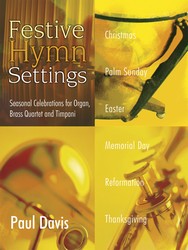- |
User Links
God of the Living, In Whose Eyes

God of the living, in whose eyes
Author: John Ellerton (1858)Published in 60 hymnals
Printable scores: PDF, MusicXMLAudio files: MIDI, Recording
Representative Text
God of the living, in whose eyes
Unveiled thy whole creation lies,
All souls are thine; we must not say
That those are dead who pass away,
From this our world of flesh set free;
We know them living unto thee.
Released from earthly toil and strife,
With thee is hidden still their life;
Thine are their thoughts, their works, their powers,
All thine, and yet most truly ours,
For well we know, where'er they be,
Our dead are living unto thee.
Not spilt like water on the ground,
Not wrapped in dreamless sleep profound,
Not wandering in unknown despair
Beyond thy voice, thine arm, thy care;
Not left to lie like fallen tree;
Not dead, but living unto thee.
Thy word is true, thy will is just;
To thee we leave them, Lord, in trust;
And bless thee for the love which gave
Thy Son to fill a human grave,
That none might fear that world to see
Where all are living unto thee.
374
O Breather into man of breath,
O Holder of the keys of death,
O Giver of the life within,
Save us from death, the death of sin;
That body, soul, and spirit be
For ever living unto thee!
Amen.
Author: John Ellerton
 John Ellerton (b. London, England, 1826; d. Torquay, Devonshire, England, 1893) Educated at King William's College on the Isle of Man and at Trinity College, Cambridge, England, he was ordained in the Church of England in 1851. He served six parishes, spending the longest time in Crewe Green (1860-1872), a church of steelworkers and farmers. Ellerton wrote and translated about eighty hymns, many of which are still sung today. He helped to compile Church Hymns and wrote its handbook, Notes and Illustrations to Church Hymns (1882). Some of his other hymn texts were published in The London Mission Hymn Book (1884).
Bert Polman… Go to person page >
John Ellerton (b. London, England, 1826; d. Torquay, Devonshire, England, 1893) Educated at King William's College on the Isle of Man and at Trinity College, Cambridge, England, he was ordained in the Church of England in 1851. He served six parishes, spending the longest time in Crewe Green (1860-1872), a church of steelworkers and farmers. Ellerton wrote and translated about eighty hymns, many of which are still sung today. He helped to compile Church Hymns and wrote its handbook, Notes and Illustrations to Church Hymns (1882). Some of his other hymn texts were published in The London Mission Hymn Book (1884).
Bert Polman… Go to person page >Text Information
| First Line: | God of the living, in whose eyes |
| Title: | God of the Living, In Whose Eyes |
| Author: | John Ellerton (1858) |
| Meter: | 8.8.8.8.8.8 |
| Language: | English |
| Copyright: | Public Domain |
God of the living, in Whose eye. J. Ellerton. [Burial.] Written for and first published in his Hymns for Schools and Bible Classes (Brighton), 1858, in 3 stanzas of 4 lines. On July 6, 1867, it was expanded by the author into 5 stanzas of 6 lines, and in this form was published in the Brown-Borthwick Words of the Supplemental Hymn and Tune Book, n.d. : and the Select Hymns for Church & Home, 1871. Also in the Society for Promoting Christian Knowledge Church Hymns, 1871, No. 245. It is in somewhat extensive use, the longer form being that usually adopted. The two forms are in Dr. Martineau's Hymns of Praise and Prayer, 1873, as Nos. 511 and 797.
--John Julian, Dictionary of Hymnology (1907)
Notes
God of the living, in Whose eye. J. Ellerton. [Burial.] Written for and first published in his Hymns for Schools and Bible Classes (Brighton), 1858, in 3 stanzas of 4 lines. On July 6, 1867, it was expanded by the author into 5 stanzas of 6 lines, and in this form was published in the Brown-Borthwick Words of the Supplemental Hymn and Tune Book, n.d. : and the Select Hymns for Church & Home, 1871. Also in the Society for Promoting Christian Knowledge Church Hymns, 1871, No. 245. It is in somewhat extensive use, the longer form being that usually adopted. The two forms are in Dr. Martineau's Hymns of Praise and Prayer, 1873, as Nos. 511 and 797.
--John Julian, Dictionary of Hymnology (1907)
Timeline
Arrangements
Media
Small Church Music #3364
- PDF Score (PDF)


 My Starred Hymns
My Starred Hymns




